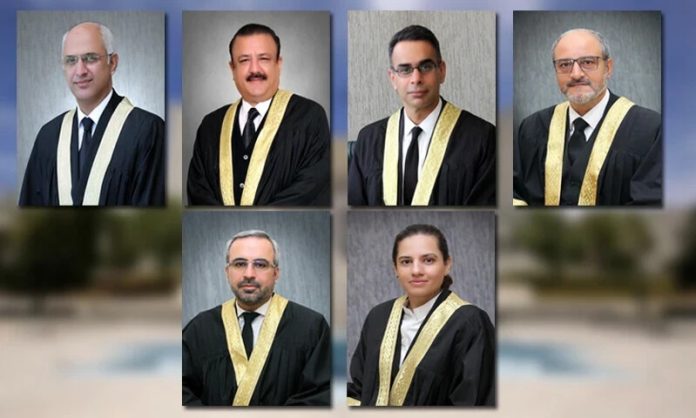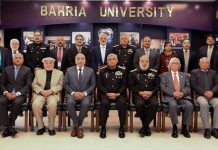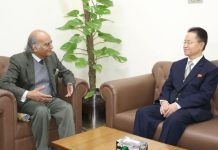The IHC judges, where Justice Siddiqui had served and was in line to become its next chief, said that they supported Justice Siddiqui and that the allegations he had levelled should be probed, as observed in the top court’s verdict
ISLAMABAD: At least six judges of the Islamabad High Court (IHC) on Tuesday wrote to the Supreme Judicial Council, urging it to summon a judicial convention to review the grave issue of interference by intelligence operatives in judicial functions and/or intimidation of judges in a manner that undermines the judiciary’s independence.
The 11-point letter was signed by six IHC judges, including Justice Mohsin Akhtar Kiyani, Justice Babar Sattar, Justice Arbab Muhammad Tahir, Justice Tariq Mehmood Jahangiri, Justice Sardar Ejaz Ishaq Khan, and Justice Saman Rafat Imtiaz.
The judges said that this issue has arisen in the aftermath of the top court’s verdict last week in Justice (retired) Shaukat Aziz Siddiqui’s case. The top court had restored Justice Siddiqui’s stature as a judge and his pension but could not restore him as a judge because he had crossed the retirement age of 62, as it noted that the SJC unlawfully dismissed him for levelling serious allegations at state institutions in a speech before the Rawalpindi bar.
They noted that Justice Siddiqui had been removed for accusing the Inter-Services Intelligence (ISI) DGC Gen Faiz Hameed of interfering in the constitution of benches at IHC and dictating verdicts.
The IHC judges, where Justice Siddiqui had served and was in line to become its next chief, said that they supported Justice Siddiqui and that the allegations he had levelled should be probed, as observed in the top court’s verdict.
The judges said that the Code of Conduct set for judges does not prescribe anything regarding how judges should react to interference and intimidation in the independence of the judiciary by state or non-state organs.
“We, therefore, request that a judicial convention be called to consider the matter of interference of intelligence operatives with judicial functions and/or intimidation of judges in a manner that undermines the independence of the judiciary,” the letter urged the SJC.
It expressed the hope that such a convention may provide further information on whether judges of other high courts have had similar experiences to those faced by Justice Siddiqui.
“Such institutional consultation might then assist the Supreme Court to consider how best to protect independence of the judiciary, put in place a mechanism to affix liability for those who undermine such independence and clarify for the benefit of individual judges the course of action they must take when they find themselves at the receiving end of interference and/or intimidation by members of the executive.”

















